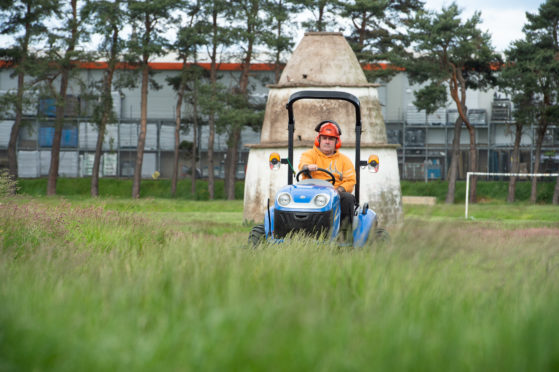An unexpected increase in Scottish Government funding has allowed Moray Council to reverse grass cutting reductions while also offering hope for the region’s public toilets.
There was outcry last summer when parks across the region were left unusable as grass grew above waist-height in many areas.
The move was made as part of £10million worth of devastating cuts that also hit services including school crossing patrollers.
Further reductions in park maintenance had been due to be made yesterday amid warnings the burden may fall on communities.
However, financial officers in the chambers revealed a better-than-anticipated budget settlement from Holyrood as well as £900,000 generated from selling assets had eased imminent pressures.
Yesterday the council’s SNP administration group agreed the picture had improved to the point of reversing grass cutting reductions already made, and revealed public toilet closures would be reviewed again in August.
The move followed pressure from the Conservative group over several months about the unforeseen consequences of a decision they originally supported.
Group leader Tim Eagle said: “I cannot welcome enough the reversal of the decision on grass cutting, it has been a long campaign to get this reviewed and this will be a welcome relief for our communities and allow us all to enjoy our outside spaces this summer.
“However I am disappointed that that there are no firm assurances around public toilets which will need to be debated again in August.”
Further work will be done by officers to examine the possibility of park sponsorships from local firms to generate income.
Meanwhile, the possibility of introducing meadow grass at some locations has been suggested as a “spend to save” possibility.
Investigations will be done in the coming months with external organisations to determine whether public toilets can be supported enough to remain open.
Speyside Glenlivet councillor Derek Ross, who campaigned for the facilities to be retained, said: “We shoot ourselves in the foot reputationally if we close them. It’s costing us more to clean up sites than we are saving.
“We don’t have a comprehensive comfort scheme set up yet. We need to lessen the effects on our hard-pressed communities that are already struggling with capacity to cope.
“We should be keeping the ones we still have open and reopening ones that are in hot spot tourist areas.”
